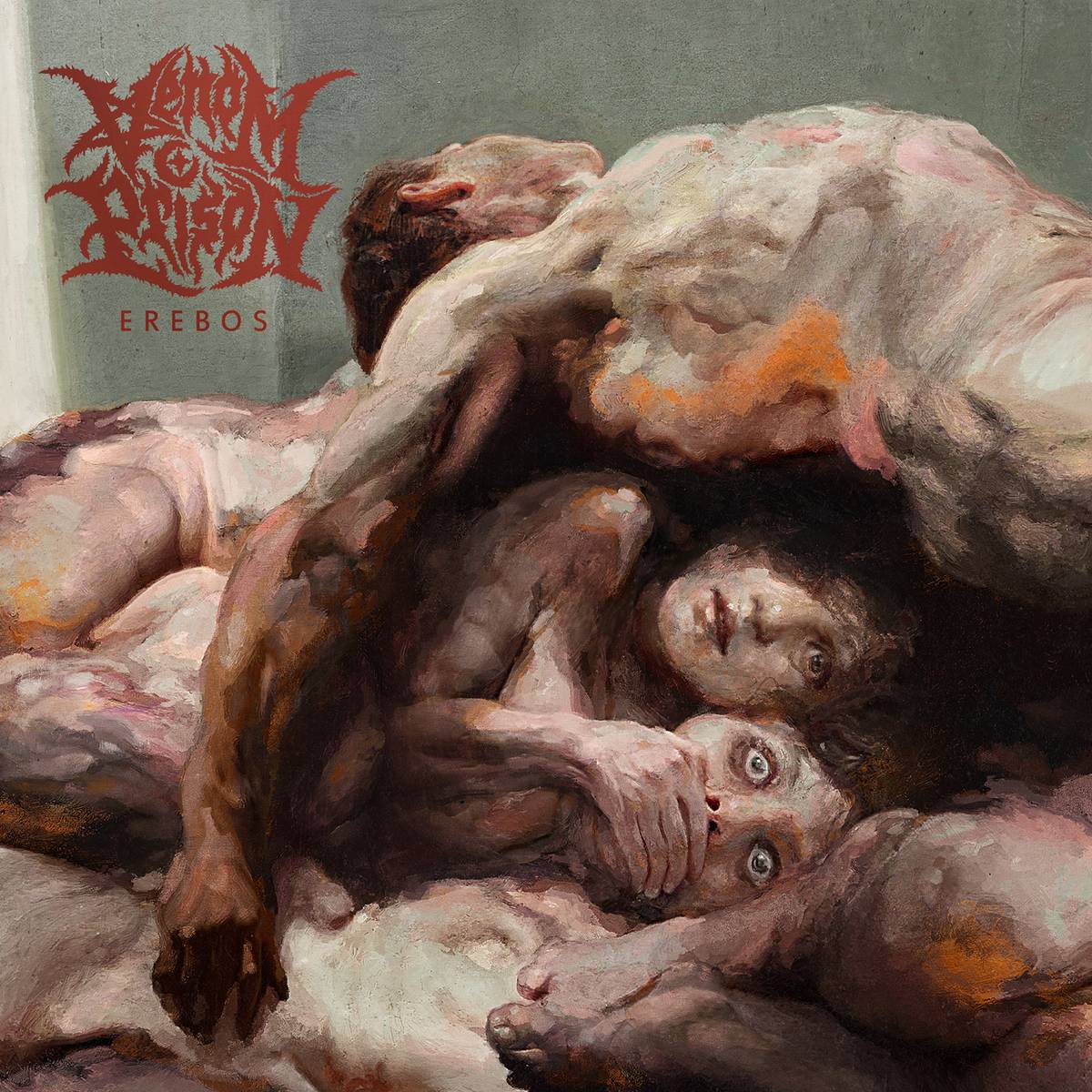
Venom Prison have a rather intriguing name. Why not “Venomous Prison.”? It may be a slight of the tongue or just a better pronunciation of the band’s name. On the other hand, it might be the expression of living circumstances, where life is experienced as a slow, corroding venom that paralyzes and kills one’s psyche.
I am under the impression that Venom Prison released Erebos under a loose concept and each song tells a story that deals with abuse, suffering, injustice, oppression, victimization, through the symbolic lenses of Greek Mythology.
All myths, and I include here the mythological stories of religions that have survived to this day, contain within them a narration of the experienced reality that we share, albeit under a symbolic use of language. This property of myths is what makes them such great stories. We can find meaning in them, even though our logic cannot fully grasp and explain.
In this sense, Erebos needs to be experienced and felt in a similar manner; A story that speaks both directly and indirectly about the experienced reality. Under the names and stories of the mythological creatures and deities that appear throughout the album we can find a story of oppression, misery, rage, fear, power, abuse, war. We can, moreover, get in touch with the personal experiences of the narrator more easily and feel compassion for them, even solidary rage and passion, and is exactly this unique property that has made metal music to be personal and communal at the same time.
In other words, Venom Prison succeed in creating both compelling compositions with great riffs and intense choruses and at the same time have lyrics that can be shouted and screamed and make the experience of the album more complete. I would assume, since I haven’t seen them perform, that they must have a rather captivating presence on stage.
These past years have been interesting and intense since communication through internet has started to shape our reality. One of the main positive attributes of this still forming reality is that voiceless people now have a voice and get in touch with other people with similar experiences and pursue connection and change. By making the world smaller and the distances almost nonexistent, we lost a sense of desire to connect but at the same time we gained the ability to inform ourselves in a more complete and multicolored way. Now, lyrics like:
“Trapped in a cycle of a manic mind hypnosis
Schizophrenia. Misdiagnosis.
Trapped in a cycle of a manic mind hypnosis
Who is to blame? The crimes contested.”
And their meaning is not to be met solely in the work of Michelle Foucault per se, but to the living person that is at the same time in another continent and next to us. The voicing concerns of abuse are not met only in art, but through it we may connect with individuals that have suffered like us.
Seeing the cover of the album, designed by Eliran Cantor, we can feel a sense of imminent danger and at the same time of solidarity between two women that have woken up inside a mass grave. The woman on top has a motherly concern in her eyes, showing us that she has been awake for quite some time and is aware of the circumstances, while the woman below just woke up in a horrible new reality and her scream is muffled by the more experienced and wiser woman, purely for her safety. Maybe we see here the fragmented personality of a woman in the aftermath of her abuse, waking up in a chaotic world called Erebos.
Hence, the music is chaotic, moving in multiple directions, creating complex compositions that accompany and bring to the surface the passionate performance of Larissa Stupar. But, what is made clear as the album progresses is that the themes cover a wider, far more terrifying reality than the personal experience. We are becoming part of a collective abuse forced down upon the people through means of state control.
Maybe the struggle that is presented in the cover and can be felt in the album is concluded in the lyrics of the final song:
“Seek justice or satisfy public desire?
State killing ritualised, ritualised.
Seek justice or satisfy public desire?
State force manifested.
Manifested.
Somewhere
Deep inside,
Empathy
Is still alive.”
Maybe the terrified young woman on the cover is our empathy and our humanity that has just woken up in a horrible reality. Only a question remains:
Seek justice or satisfy public desire?

0 σχόλια:
Post a Comment